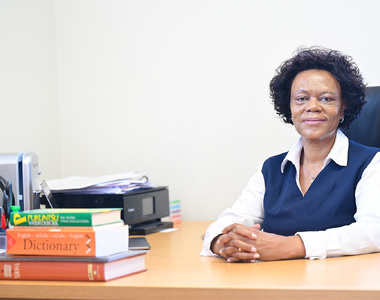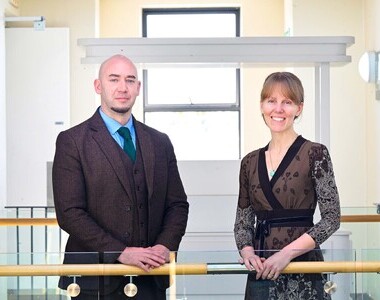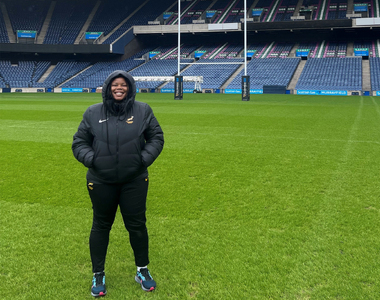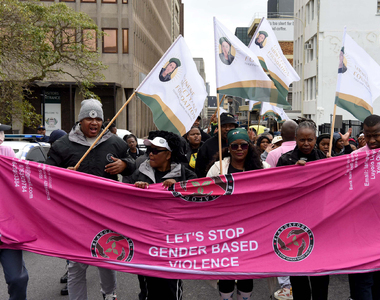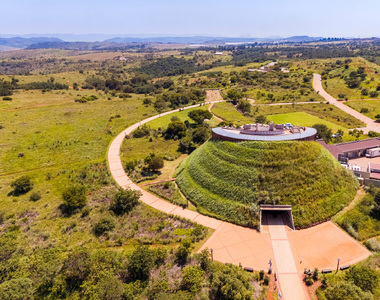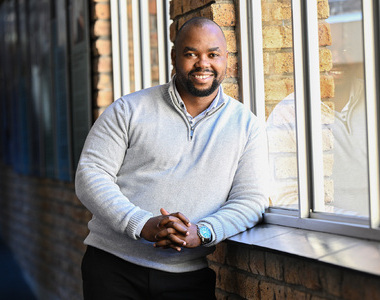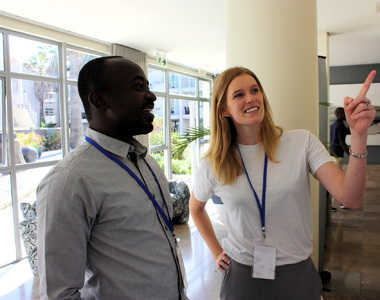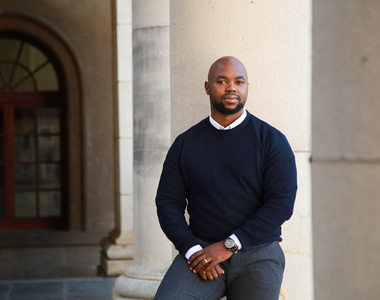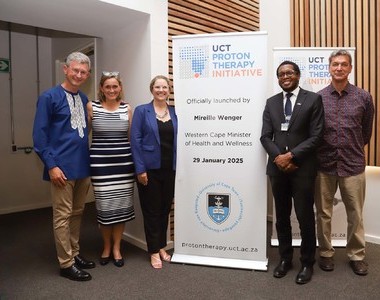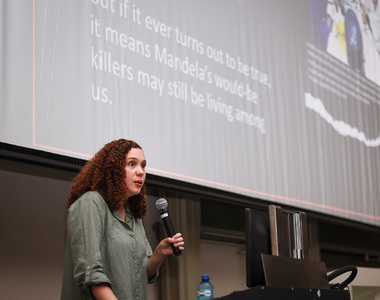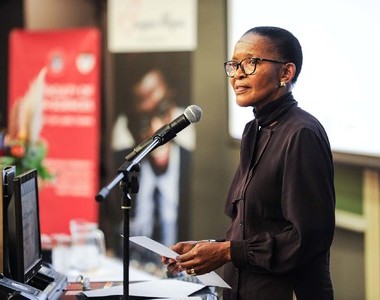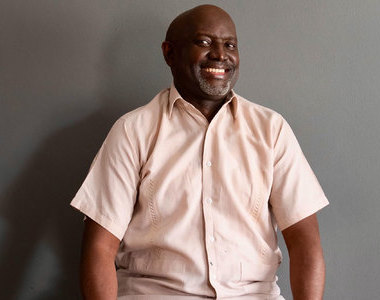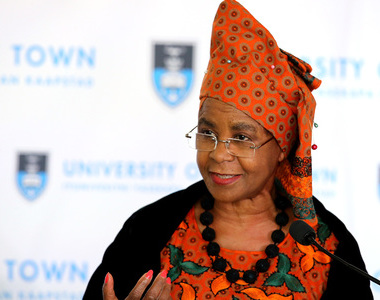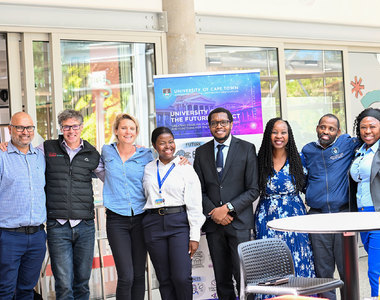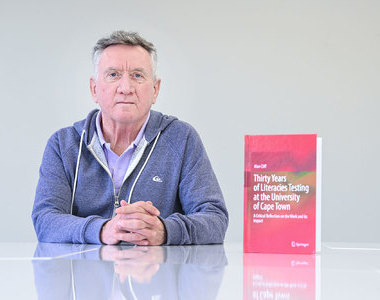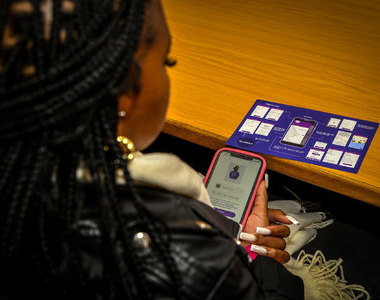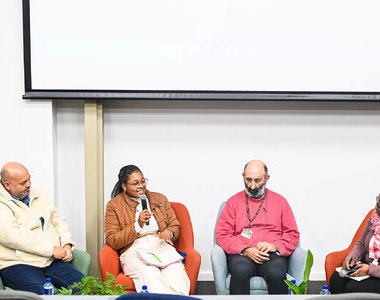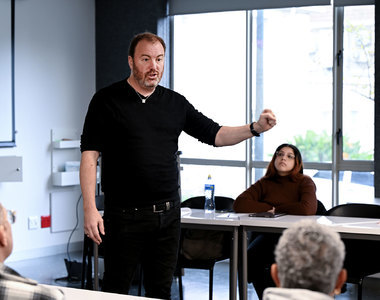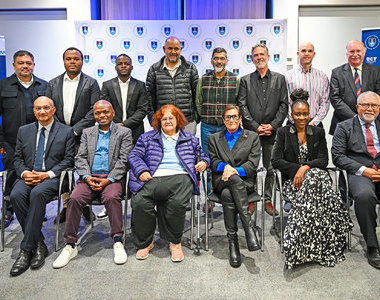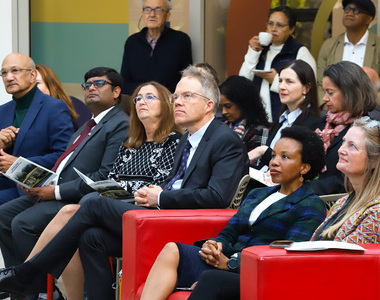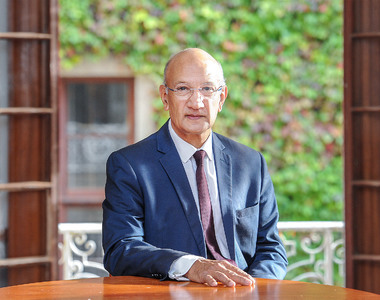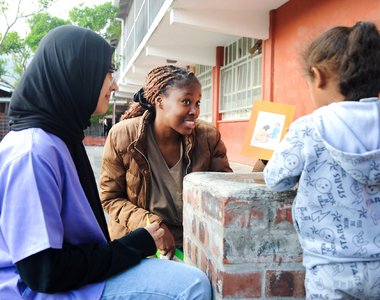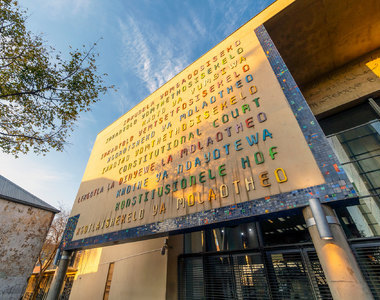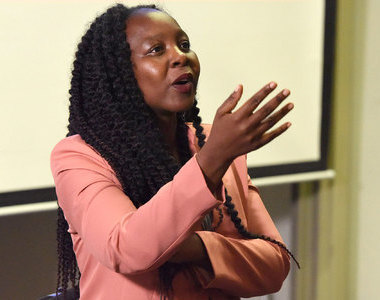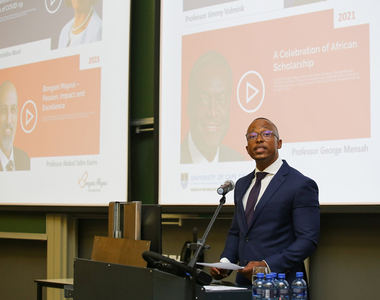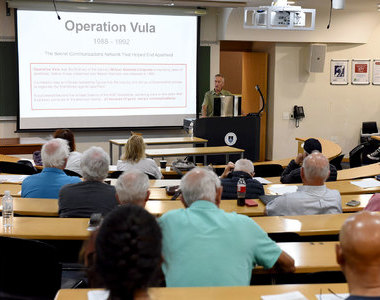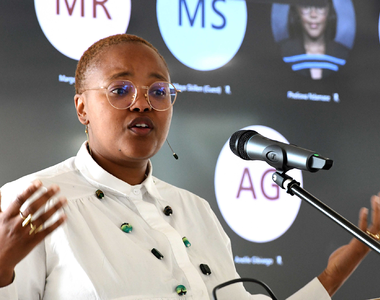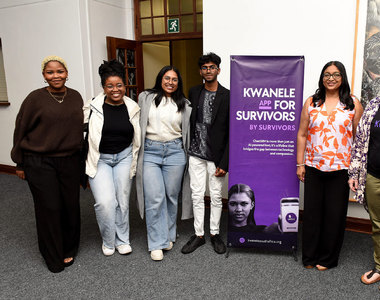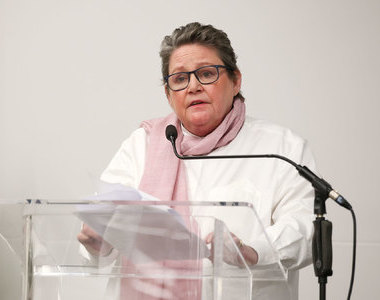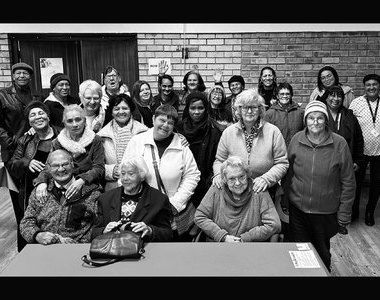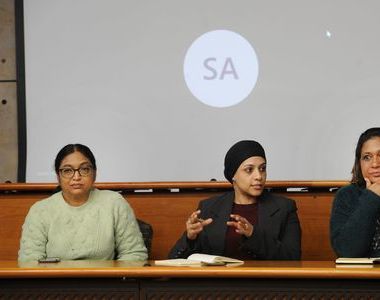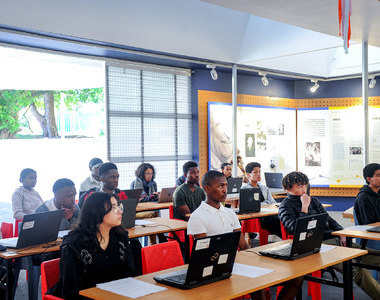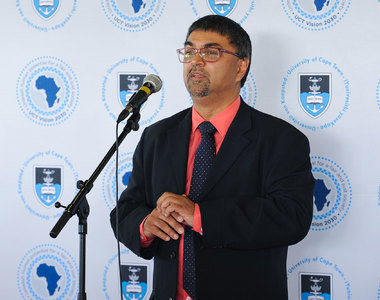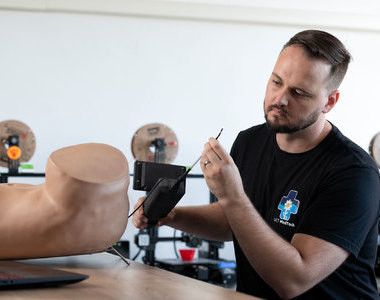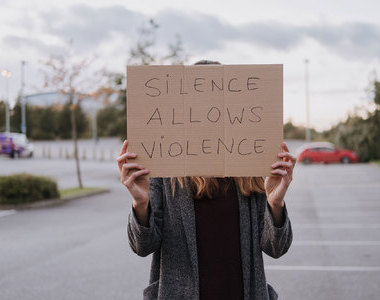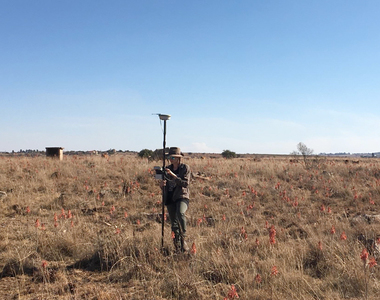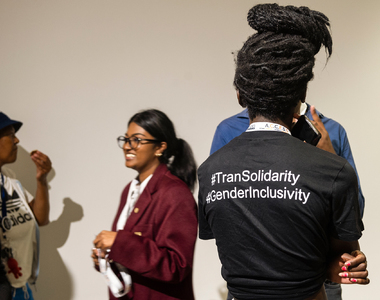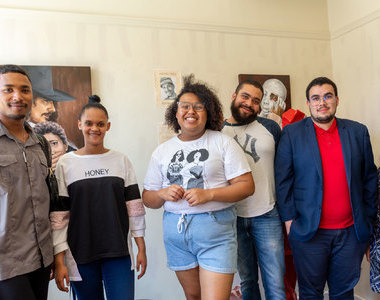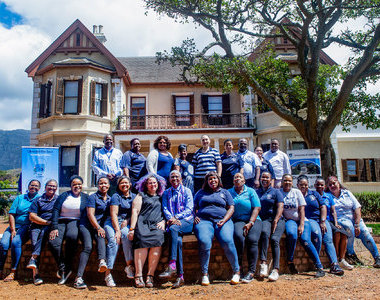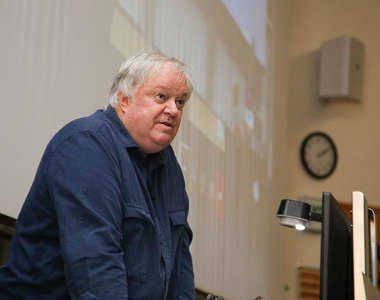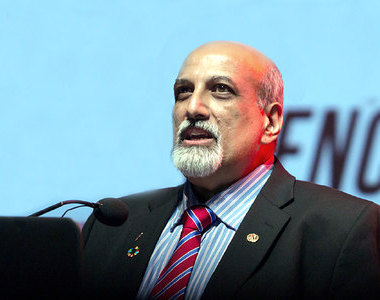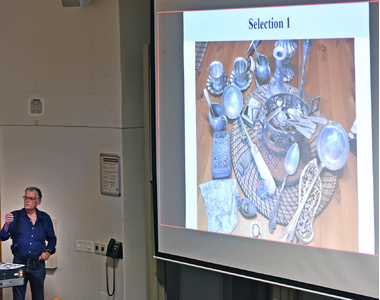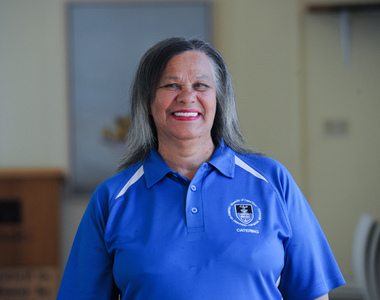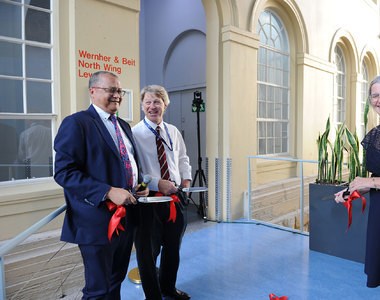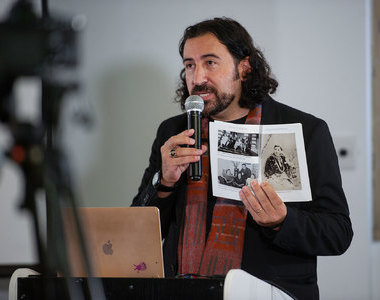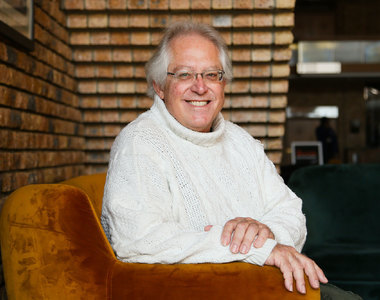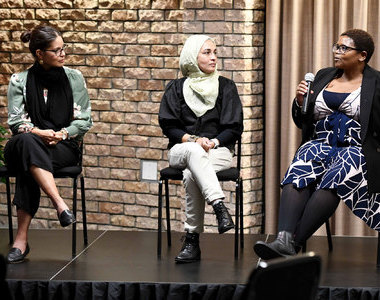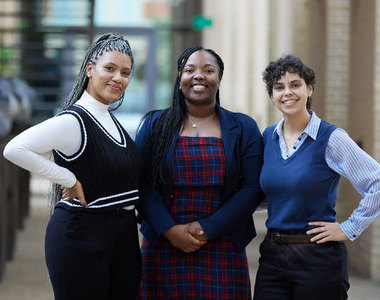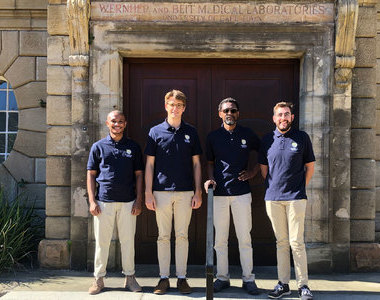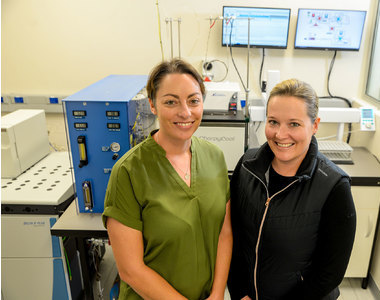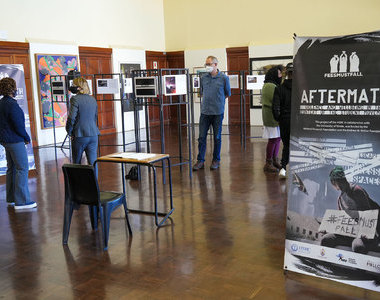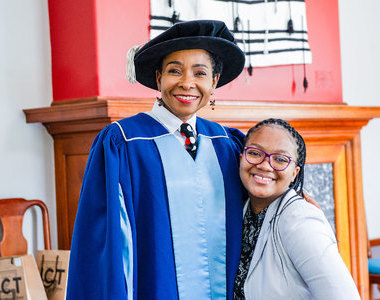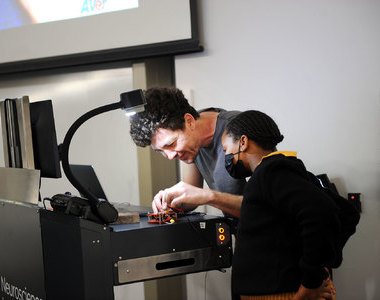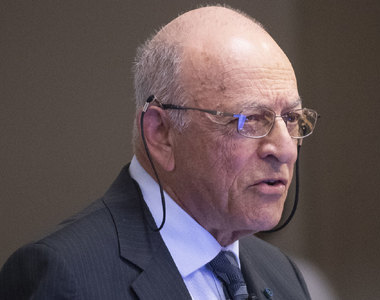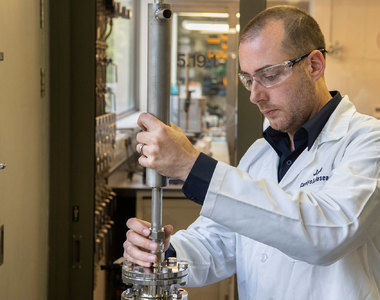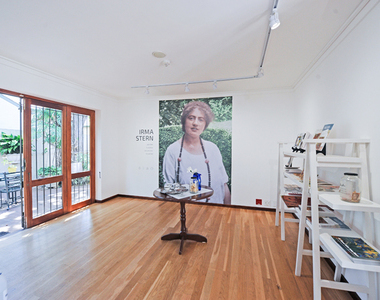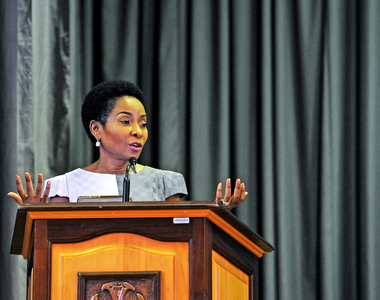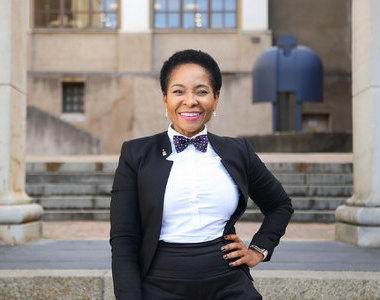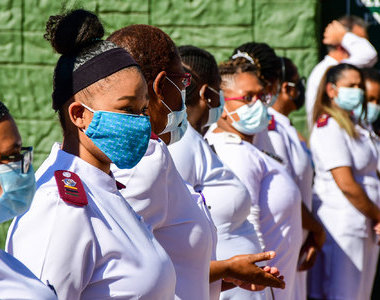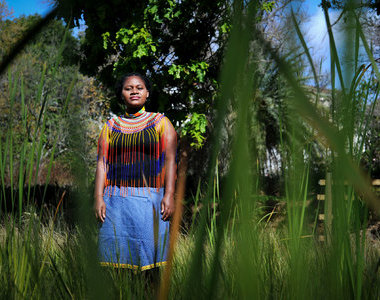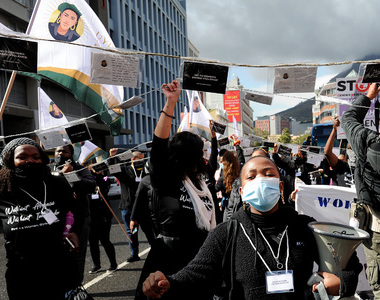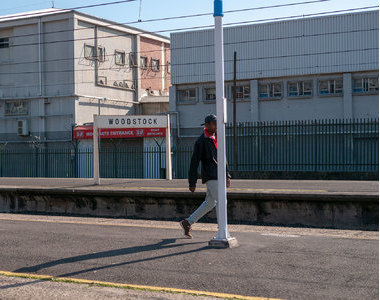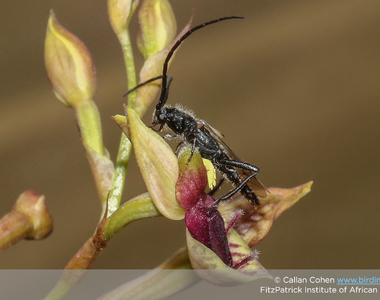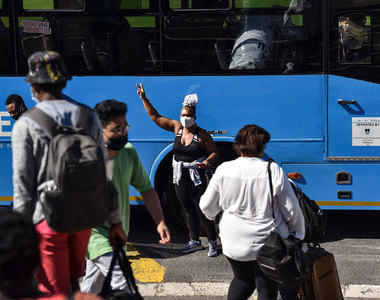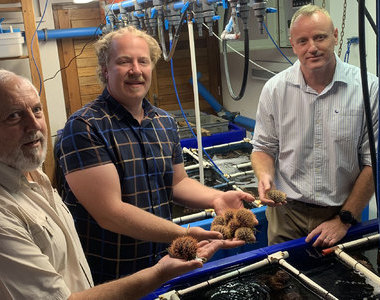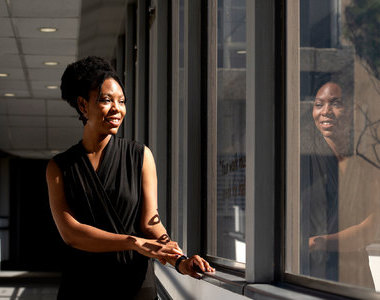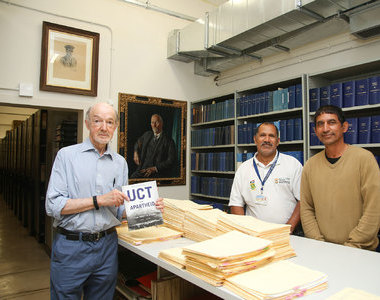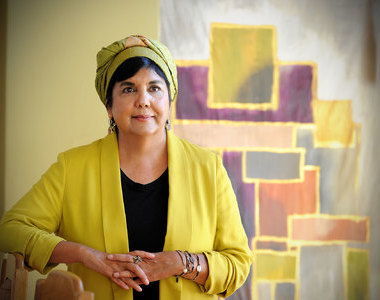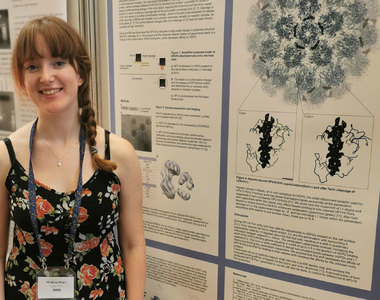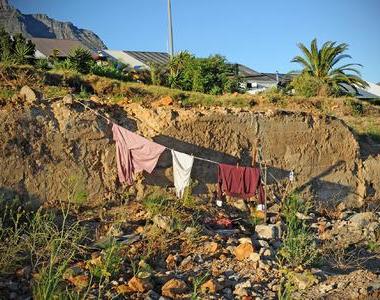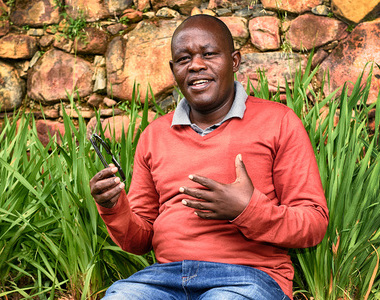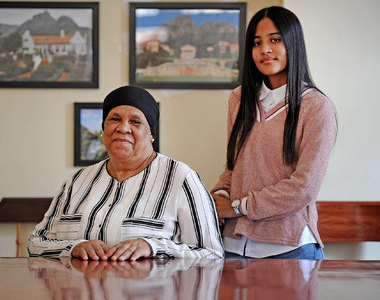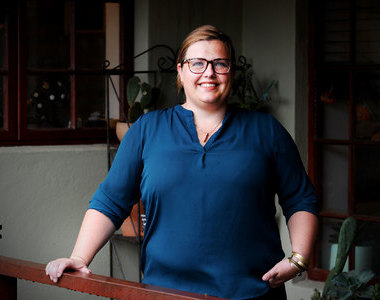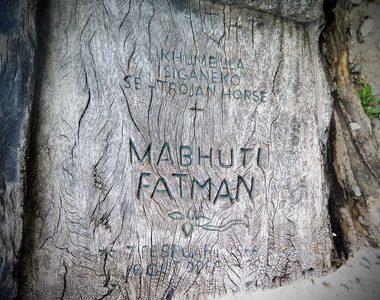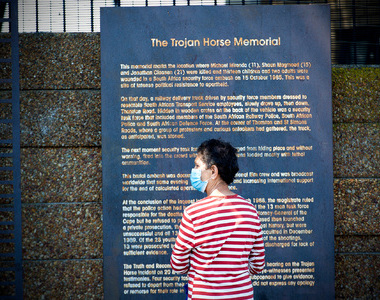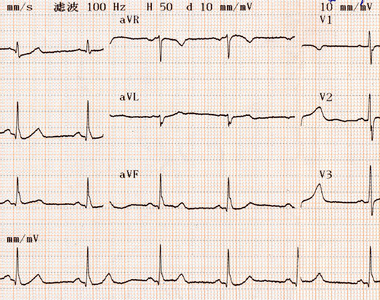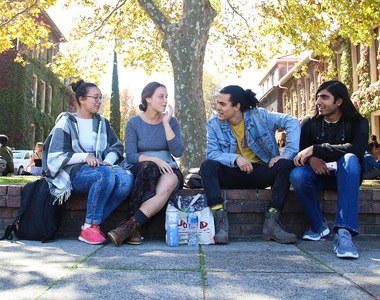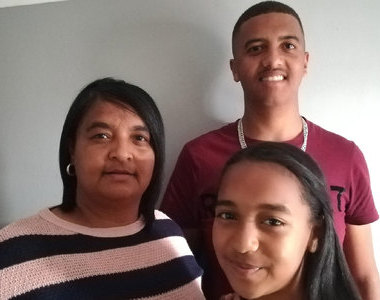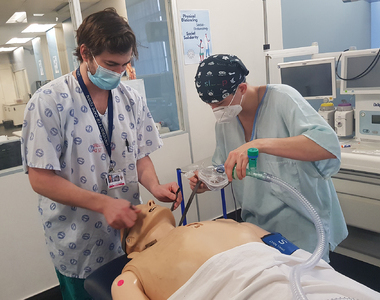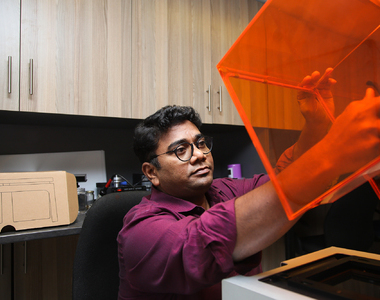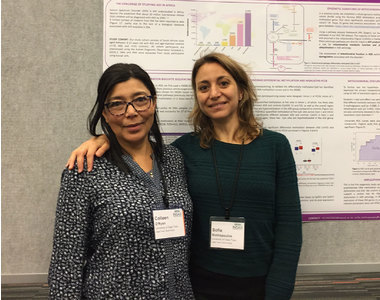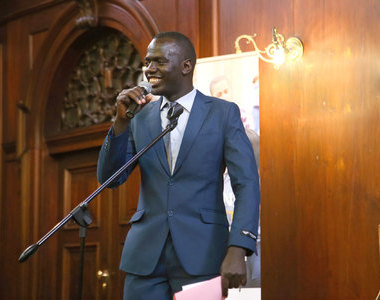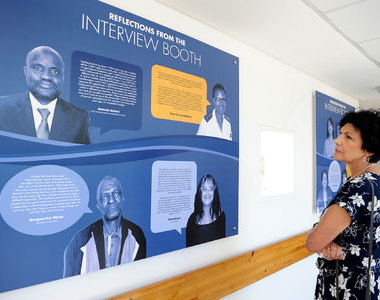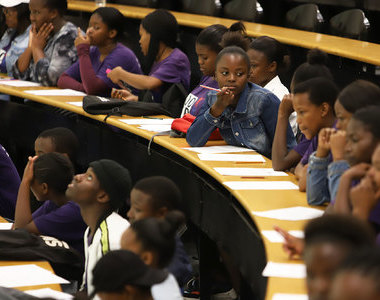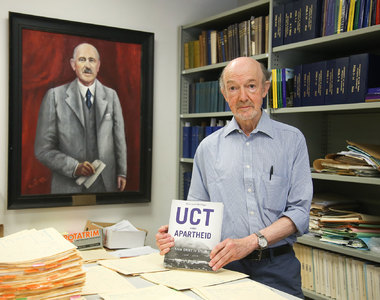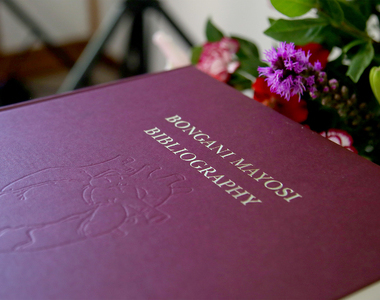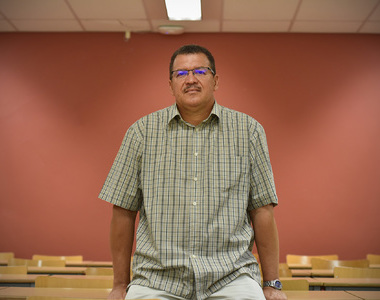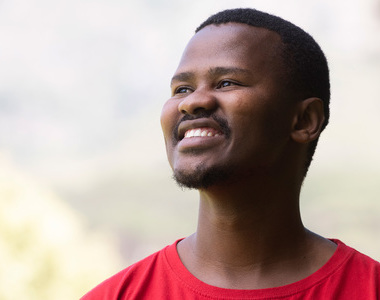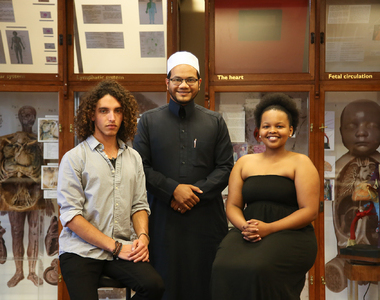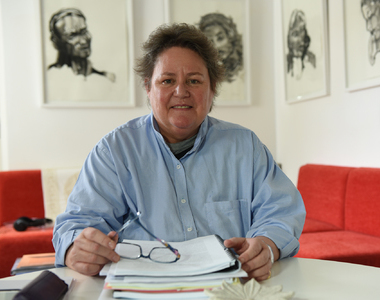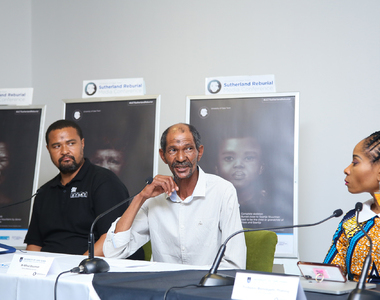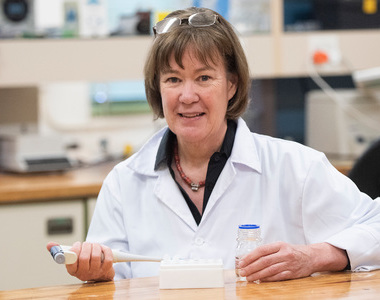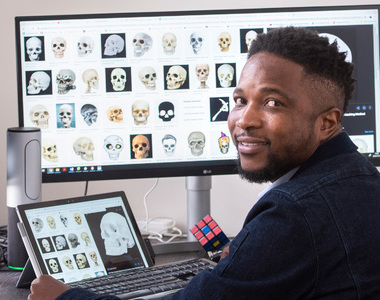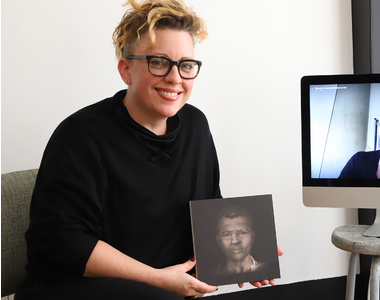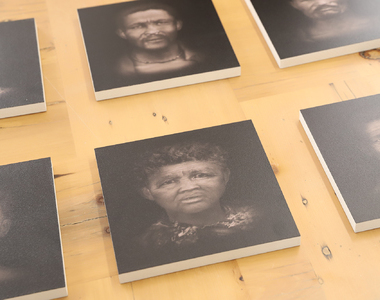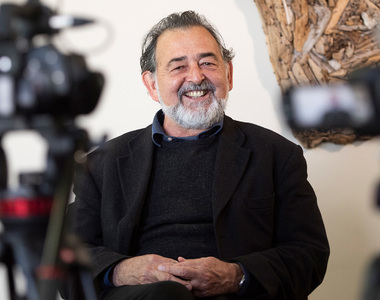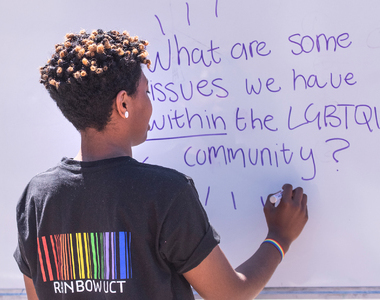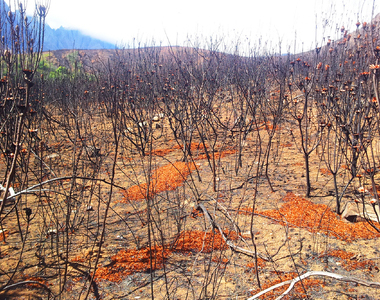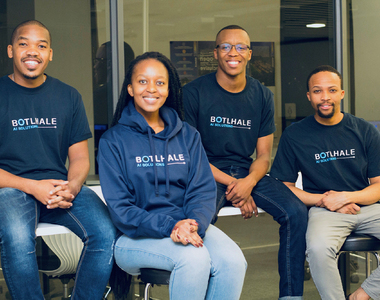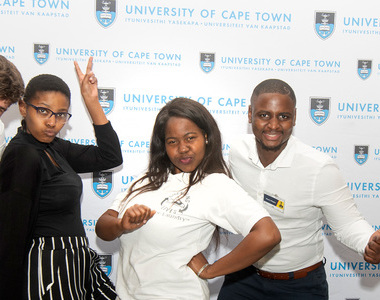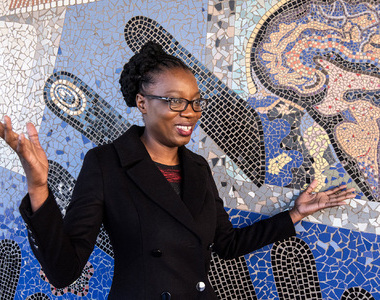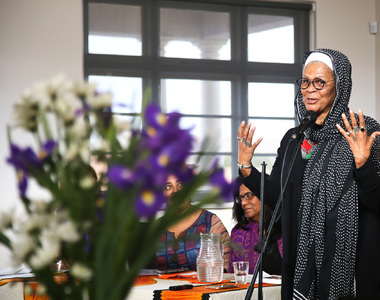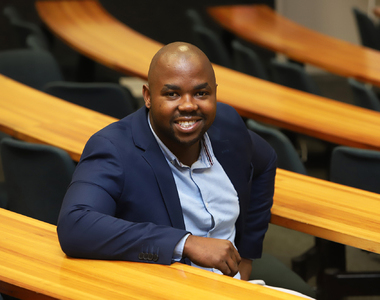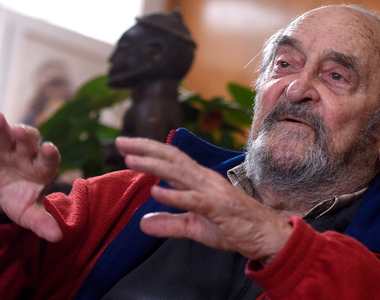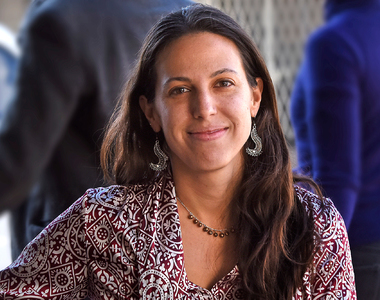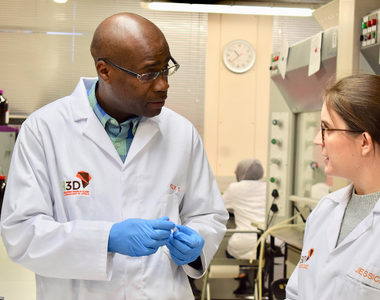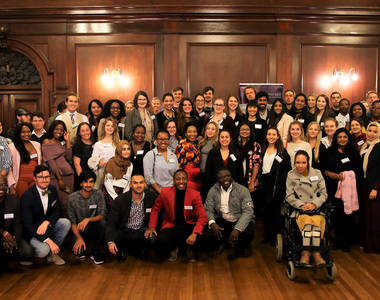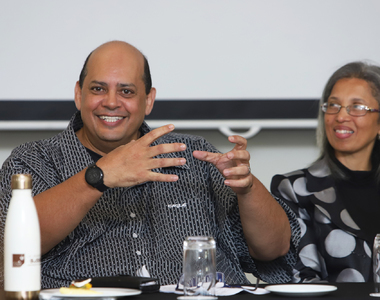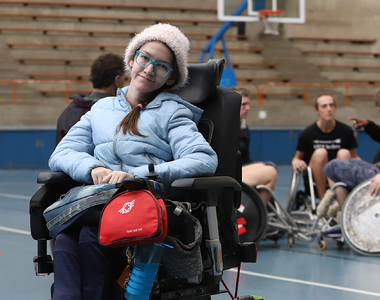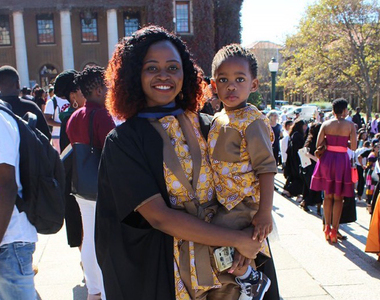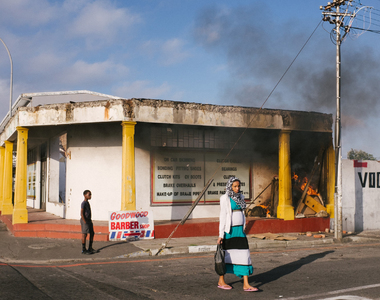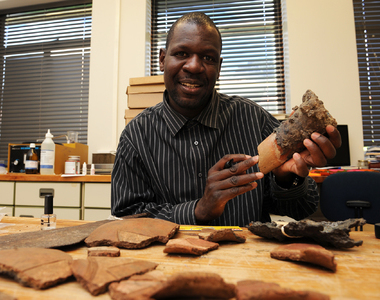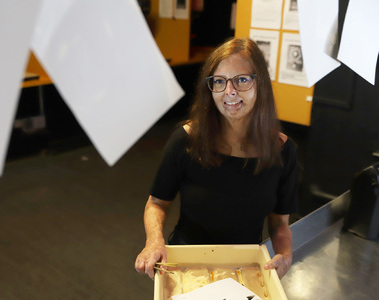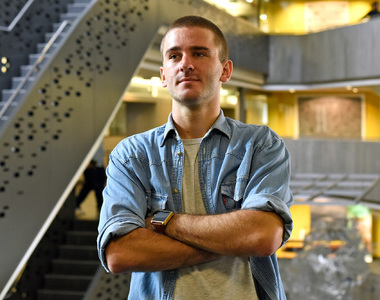UCT’s specialised sexual offences tribunal
01 October 2019 | Story Carla Bernardo. Photos Je’nine May. Read time >10 min.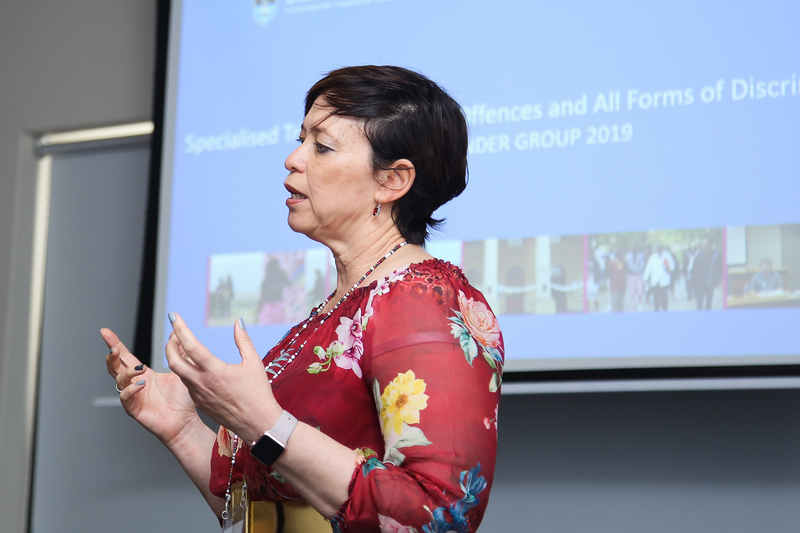
To help address the scourge of sexual and gender-based violence (SGBV), the University of Cape Town (UCT) is establishing a specialised tribunal with a strong survivor-centred approach.
Led by Deputy Vice-Chancellor for Transformation Professor Loretta Feris, the tribunal forms part of the institution’s broader response to SGBV, which has been informed by research and data. In addition to proposals for amendments to relevant policies and safety and prevention strategies, the tribunal is an important effort by the university to tackle the complexities surrounding SGBV.
At the recent annual meeting of the International Alliance of Research Universities’ (IARU) gender diversity group, Feris and UCT legal counsellor Anne Isaac presented details of the initiative to their peers.
Representatives from Yale University, the Australian National University, ETH Zürich, the National University of Singapore and the universities of Tokyo, Copenhagen and Oxford attended the meeting, which was hosted by UCT on 26 and 27 September.
Over the two days, the group examined two major issues: SGBV, and supporting staff, especially female staff and staff of colour, in terms of succession.
On the first day, during their presentation entitled “Innovative Practices: The UCT Specialised Tribunal for all Forms of Discrimination and Sexual Offences”, Feris and Isaac unpacked the data-led response and the associated challenges, suggesting potential solutions.
“We invite them to report it all because reporting means that we have a better sense of what is happening with students and staff.”
Data-led response
In 2018, the Office for Inclusivity and Change (OIC), headed by Dr Sianne Alves and which falls under Feris’s transformation portfolio, launched an online case management system allowing staff and students to report sexual offences.
During her part of the presentation, Feris shared data collected during the reporting period 1 January to 16 September this year. The reported cases showed up the following:
- 35% were rape
- 27% were sexual harassment
- 21% were sexual assault
- 12% were domestic violence
- 5% were unknown, which means details were not provided.
Data on the location of the rapes showed that most occurred off campus. In terms of the alleged perpetrators, although four were staff members – three professional, administrative support and service (PASS) staff and one academic – the majority were either students or external to UCT.
Regardless of whether the perpetrator is a member of the campus community or if the crime took place on campus, Feris said staff and students are encouraged to report all instances.
“We invite them to report it all because reporting means that we have a better sense of what is happening with students and staff. But secondly, reporting also means we can provide survivor support,” she said.
This data and research are then used to inform the university’s response but also publishable research.
The challenges
In researching the complexities surrounding SGBV and how best to respond, Isaac said her team identified several challenges within existing procedures.
The first is that there are different disciplinary procedures for academic staff, PASS staff and students. Staff disciplinary procedures have internal human resources (HR) and labour relations requirements, while students go through the university’s student disciplinary tribunal process.
Overall, it emerged that the lack of a gender-sensitive approach is problematic, along with a lack of understanding of the trauma experienced by survivors and how this affects their ability to provide evidence, and a lack of adequate support.
Related to the above is a shortage of specialised experience, said Isaac. Often, there would be a lack of SGBV expertise from all involved: the presiding officer, prosecutor and the assessors who are drawn from staff and students.
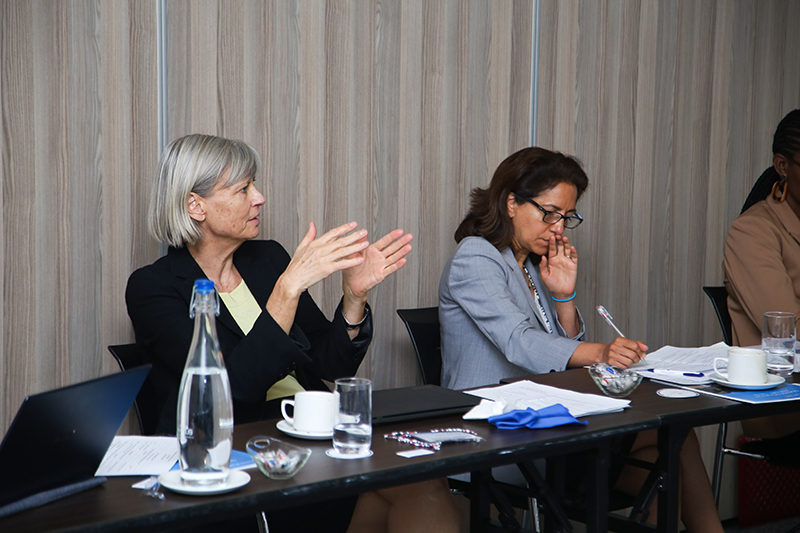
This lack of expertise extends to Campus Protection Services (CPS) where officers are expected to deal with SGBV-related crimes without the requisite experience or skills.
The adversarial nature of the process presents another challenge, Isaac said.
There are numerous factors at play here but most notable are the cross-examination by the accused or their representative, the effect on the survivor of sitting close to someone who has violated them, the lack of restriction on how many external representatives an accused can have,, and how debilitating the entire process is for the survivor, potentially compromising their credibility.
The length of time it takes to investigate and prosecute cases is also an issue. Part of this, she said, is due to the ad-hoc nature of the presiding officer position: Because the presiding officers are drawn from faculty, cases are heard according to their availability.
Social media and online sexual harassment, which has proven a difficult area to investigate, is of concern as well.
Building capacity
While the project team is uncertain about whether to have one specialised tribunal to deal with all forms of discrimination and sexual offences, Isaac said she believes the issues should be separated.
“If you want to have a very survivor-centred approach to these prosecutions, you can’t lump it in a system that’s dealing with a complainant [who has not] experienced a physical violation,” she said.
For now, one of the solutions is to remove all SGBV cases from the ordinary disciplinary legal office and to see them addressed instead by the specialised tribunal.
To overcome the challenge of separate procedures for academic and PASS staff and students, Isaac said the intention is that this panel will adjudicate both staff and student matters, while complying with the appropriate legislation, such as internal HR policies and the Labour Relations Act.
Building relevant capacity will be used to deal with the lack of a gender-sensitive approach and specialised experience. The tribunal, which will provide a knowledge base and experience, will comprise a presiding officer or proctor and two assessors. All will have or undergo training.
Already four people with litigation and SGBV knowledge have been appointed from outside the university to serve on the tribunal.
Assessors will still be drawn from staff and students but they will be required to go for training around SGBV.
Isaac added that a number of CPS officers will be selected to also undergo SGBV training.
“To ensure a survivor-centred approach, support for the survivor will be provided from the very beginning and throughout the process.”
Experience and adversarial nature
An experienced panel will mean there is a better understanding of the trauma and how this may affect someone giving evidence, she explained.
Furthermore, to ensure a survivor-centred approach, support for the survivor will be provided from the start and throughout the process. The OIC will provide a social worker who will be responsible for supporting the survivor from the reporting stage and keeping tabs on the process, including being present when the survivor gives evidence.
There will also be an evidence leader who will lead the investigation and present the case to the panel. The hope here is that by having one person responsible, nothing is lost in the process. The evidence leader will ensure there is training for all parties, take an interest in how evidence is gathered and if there is corroboration from witnesses. This will hopefully see cases fast-tracked and address expediency issues.
The adversarial nature of the process will be dealt with in several ways, said Isaac. The starting point is having an experienced panel. A set of procedural rules will be introduced to ensure that the proctor and/or tribunal follows a more survivor-centred process.
The team is also motivating for in-camera proceedings. In this way, there will be no physical contact between the survivor and the accused, but all other parties will witness the survivor’s account via a screen. Current rules do provide for this, at the discretion of the proctor, but are not yet specific.
The team proposes that instead of cross-examination, questions be put via the panel and are instead inquisitorial in nature. In addition, where there is external representation for the accused, their proposal is that this be restricted to just one person.
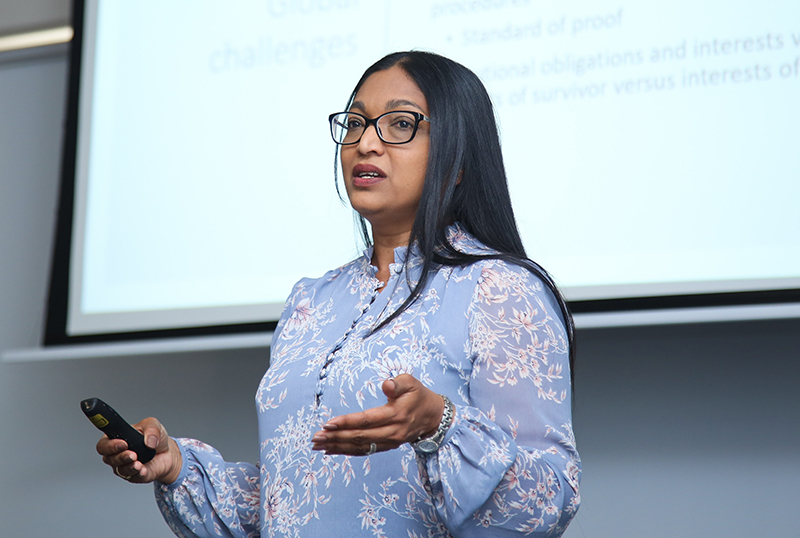
No-contact order
The final proposal from Feris and Isaac’s team is requesting an extension of a no-contact order to all forms of SGBV. A no-contact order is akin to a restraining order or a domestic violence interdict.
The intention is that UCT makes an application to the proctor immediately or soon after the report of the incident. It must show that there can be no contact with the survivor by the accused – directly, indirectly or in any manner whatsoever.
There are, however, difficulties in implementing the order when the two parties live in the same residence or are in the same study stream.
To counter these challenges, the team will request that arrangements be made via the director of student housing to move the accused. This is not a punitive action but rather a protective measure for the survivor.
The accused is still afforded their rights: Within 72 hours of the provisional order being granted, the accused has the right to argue why it should not be confirmed. If and when it is confirmed, it is in place for up to six months or until the finalisation of the disciplinary procedure.
To deal with the challenge of enforcing the order, the suggestion is that should there be any breach, an application for a suspension from the residence system or the university would be warranted.
The requirements for the suspension order are slightly different from the no-contact order. While the latter is based on credible allegations, the former is dependent on the behaviour of the student and whether this is viewed as a threat to the maintenance of good order.
 This work is licensed under a Creative Commons Attribution-NoDerivatives 4.0 International License.
This work is licensed under a Creative Commons Attribution-NoDerivatives 4.0 International License.
Please view the republishing articles page for more information.
Listen to the news
The stories in this selection include an audio recording for your listening convenience.







